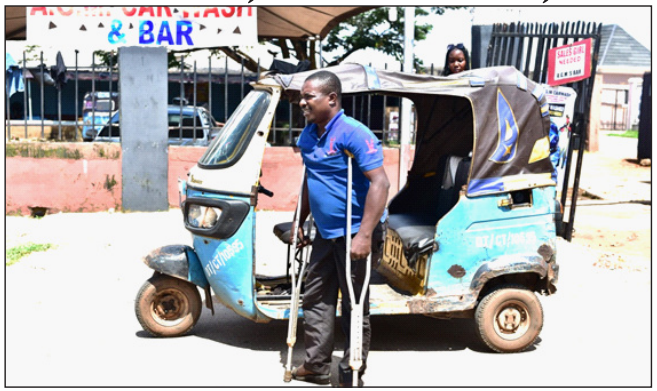WHEN the tricycle, popularly known as Keke, was first introduced in Lagos State during the administration of Brigadier-General Mohammed Marwa (1996– 1999), it was intended as an economic stimulus to tackle youth unemployment. The initiative was later embraced and amplified by the National Poverty Eradication Programme (NAPEP) under President Olusegun Obasanjo in the early 2000s, becoming a national approach to reduce poverty and create jobs.
Despite its adoption and wide acceptance across Nigeria, the tricycle has grown into a major mode of intra-city transportation; its trajectory, much like that of its two-wheeled predecessor, the motorcycle (Okada), is increasingly troubled by its vulnerable side: criminal elements are exploiting it for nefarious activities.
Disturbing reports abound of passengers being robbed, dispossessed of phones, money, and valuables in broad daylight, and in worse scenarios, they are kidnapped. These crimes are often committed inside these tricycles shielded by tarpaulin curtains, originally intended to protect riders from the elements but now serving as covers for criminals and effectively shutting out the prying eyes of law enforcement agents and bystanders.
It was against this backdrop that the Delta State Government during the Ifeanyi Okowa administration proscribed the use of tarpaulin curtains in tricycles. The policy, aimed at limiting the rising tide of crimes in the state, has been sustained by the incumbent Governor Sheriff Oborevwori. Since then, the state has recorded a significant decline in Keke-related criminal incidents, thereby restoring public confidence in the safety of passengers boarding tricycles.
Only recently, the Delta State Police Command has been able to nip certain crimes in the bud during their routine stop-and-search exercises in these tricycles, recovering stolen phones by criminal syndicates. This was largely achieved because those tricycles were not covered.
However, the necessity of that security measure has not gone without protest. In recent weeks, some commuters and tricycle operators in Asaba, the state capital, made an appeal to the government to lift the ban, particularly during the rainy season. Their argument is not without some merit, as they believe that shielding passengers from rainfall would encourage patronage and offer much-needed comfort while commuting.
But while their plea may seem plausible on the surface, it glosses over a far more pressing concern: the security of passengers. It is undeniable that a few unscrupulous individuals often exploit seemingly harmless conveniences to perpetrate grave crimes, thus conveying the stark dilemma: should the government risk lives in the name of keeping people dry, or should it embrace a little discomfort to ensure the safety of all?
We believe the answer is self-evident. Since humans are not soluble after all, they will not dissolve in the rain as salt would in water. Passengers may get wet, but it is better for them to get home alive, where they can towel off and carry on thereafter. The rain is temporary, but the trauma of an armed robbery or abduction in a worst-case scenario is not.
The very existence of laws stems from the undeniable reality of human imperfection that stems from man’s abhorrent inclinations. If every individual acted responsibly, there would be no need for legislative control. Sadly, this is not the case. Government must therefore act not based on convenience but to ensure the safety and well-being of the majority.
On that account, we urge those who feel aggrieved by the ban on tarpaulin curtains or any other form of coverings in keke to place safety above comfort. It is far better to be alive and soaked than to be dry and never return home, or worse, return after being molested or robbed of a vital possession. The rains will come and go, but life once lost is irreparable.


